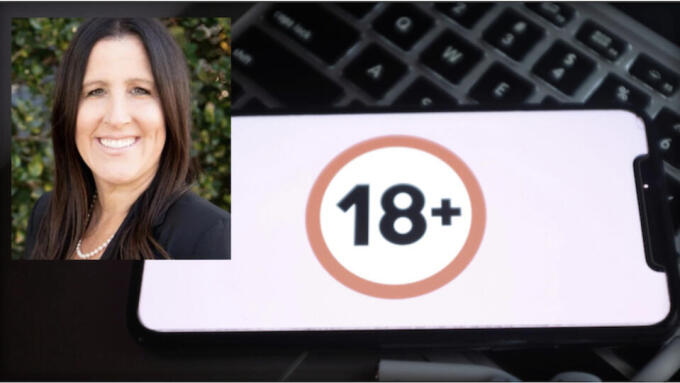BATON ROUGE, La. — As questions linger regarding the imminent implementation of a controversial Louisiana law requiring age verification for viewing adult content online, the religiously motivated Republican legislator and anti-porn crusader who spearheaded it continues her promotional campaign on its behalf.
Louisiana’s HB142, which was sponsored by faith-based therapist and local politician Laurie Schlegel (R-Matairie), is scheduled to go into effect on Sunday, although it is still unclear what compliance with the law would look like for out-of-state and non-U.S.-based websites.
Schlegel spent the last week of 2022 promoting the new law with Louisiana media. In a report on Wednesday, WAFB9 TV’s Chris Rosato provided a platform for her tendentious claims about pornography.
Schlegel’s law, Rosato explained, requires “age verification for any website that contains 33.3% or more pornographic material,” though neither Rosato nor Schlegel indicated how such calculations will be made, by whom, or even what constitutes “pornographic material.”
Pornography, Schlegel declared, “is destroying our children and they’re getting unlimited access to it on the internet and so if the pornography companies aren’t going to be responsible, I thought we need to go ahead and hold them accountable.”
Reassurances Over Privacy Issues
Schlegel told the reporter that “websites would verify someone’s age in collaboration with LA Wallet.”
LA Wallet is a digital driver’s license app used in Louisiana. The news outlet also quoted a rep from Envoc — a Louisiana-based software company that received state funds to develop a COVID-tracking app — endorsing the LA Wallet system.
“I think it’s a must-have for anyone who has a Louisiana state ID or driver’s license,” the Envoc rep said. “There are other ways websites could ask you to verify your age if you cannot access LA Wallet.” The rep added that while some personal information will be required, “companies must not retain personal data after complete verification.”
“It doesn’t identify your date of birth,” she continued, assuring Louisianans that LA Wallet “doesn’t identify who you are, where you live, what part of the state you’re in, or any information from your device or from your actual ID. It just returns that age to say that yes, this person is old enough to be allowed to go in.”
A Religious Activist Promoting Vigilante Lawsuits
Adding to the confusion, Schlegel insisted, “It will be the website’s responsibility to ensure age verification is required when accessing their site in Louisiana,” and warned that “there will be consequences for those who fail to follow the law.”
Schlegel went on to encourage vigilante lawsuits, noting that “someone could sue on behalf of their child; they can sue if children are getting access to pornography.”
HB142 “provides civil remedies for parents of minors exposed to online pornography or other explicit material if websites do not have reasonable verification procedures in place,” local news site Louisiana Illuminator reported.
The legislator and religious therapist also claimed that problems like depression, erectile dysfunction, lack of motivation, and fatigue can be directly linked to porn, and that the new law is imperative in order to prevent these issues from occurring “at younger ages.”
Moreover, Schlegel claimed that adult content is “tied to some of the biggest societal ills of human trafficking and sexual assault.”
As XBIZ reported, HB142 was introduced in April by Schlegel, who before entering politics was a faith-based couples’ counselor and “sex addiction therapist,” though the concept of “sex addiction” has been widely debunked by secular psychologists and therapists.
Louisiana Governor John Bel Edwards announced in June that he had signed 97 laws passed by the state's Republican-controlled legislature, including HB142.
Adult industry lawyer and First Amendment expert Lawrence Walters, of Walters Law Group, told XBIZ in June that he did not expect Schlegel’s legal innovation to pass scrutiny.
“It’s a mini-COPA law,” Walters said, referring to the never-enforced 1998 Child Online Protection Act. “States tried doing those when the federal COPA law was being challenged. They were all struck down on First Amendment and dormant commerce clause grounds.”
For Walters, “the issue with these ‘civil cause of action’ laws, similar to the Texas abortion law, is who has standing to challenge them until they’re enforced, and who can be named as a defendant?”
The WAFB9 TV also noted that federal copycat legislation has recently been introduced by Senator Mike Lee (R-Utah).
Main Image: Louisiana State Rep. Laurie Schlegel (R-Metairie)






